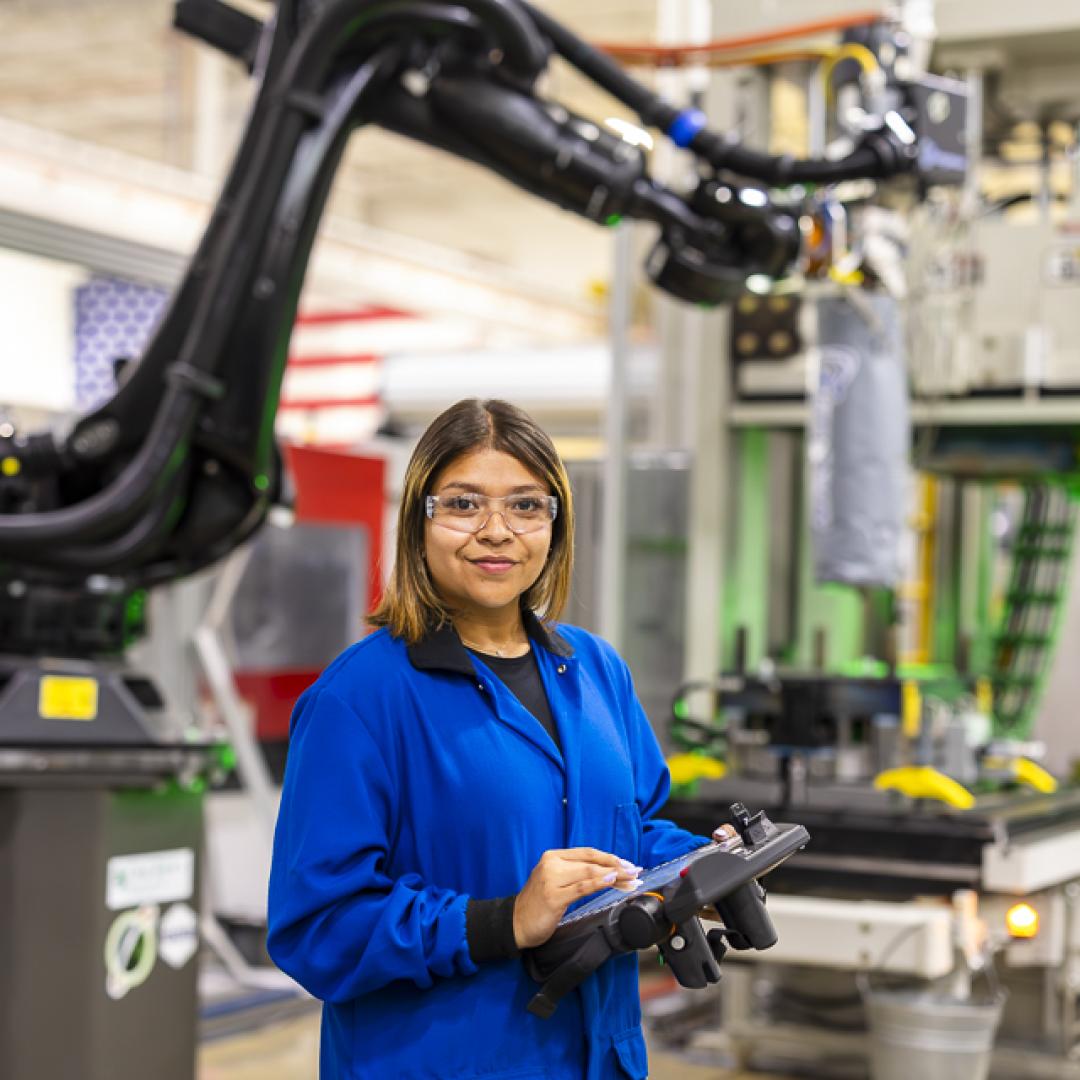
Filter News
Area of Research
- (-) Clean Energy (35)
- (-) National Security (9)
- Advanced Manufacturing (1)
- Biology and Environment (12)
- Computational Engineering (1)
- Computer Science (2)
- Fusion and Fission (2)
- Isotopes (7)
- Materials (31)
- Materials for Computing (7)
- Neutron Science (8)
- Nuclear Science and Technology (2)
- Sensors and Controls (1)
- Supercomputing (20)
News Topics
- (-) Artificial Intelligence (9)
- (-) Biomedical (3)
- (-) Clean Water (1)
- (-) Energy Storage (26)
- (-) Isotopes (1)
- (-) Machine Learning (7)
- (-) Polymers (5)
- (-) Security (6)
- 3-D Printing/Advanced Manufacturing (29)
- Advanced Reactors (4)
- Big Data (1)
- Bioenergy (15)
- Biology (6)
- Biotechnology (2)
- Buildings (8)
- Chemical Sciences (10)
- Climate Change (7)
- Composites (5)
- Computer Science (16)
- Coronavirus (4)
- Critical Materials (4)
- Cybersecurity (10)
- Decarbonization (10)
- Environment (14)
- Exascale Computing (2)
- Fossil Energy (1)
- Frontier (1)
- Fusion (2)
- Grid (9)
- High-Performance Computing (3)
- Materials (17)
- Materials Science (12)
- Mercury (1)
- Microscopy (4)
- Molten Salt (1)
- Nanotechnology (5)
- National Security (12)
- Net Zero (1)
- Neutron Science (9)
- Nuclear Energy (5)
- Partnerships (11)
- Physics (2)
- Quantum Science (1)
- Renewable Energy (1)
- Simulation (1)
- Summit (2)
- Sustainable Energy (24)
- Transformational Challenge Reactor (3)
- Transportation (18)
Media Contacts
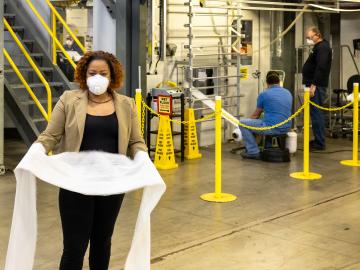
Three technologies developed by ORNL researchers have won National Technology Transfer Awards from the Federal Laboratory Consortium. One of the awards went to a team that adapted melt-blowing capabilities at DOE’s Carbon Fiber Technology Facility to enable the production of filter material for N95 masks in the fight against COVID-19.

Energy storage startup SPARKZ Inc. has exclusively licensed a battery cycling technology from ORNL designed to enable the rapid production of lithium-ion batteries commonly used in portable electronic devices and electric vehicles.

Six scientists at the Department of Energy’s Oak Ridge National Laboratory were named Battelle Distinguished Inventors, in recognition of obtaining 14 or more patents during their careers at the lab.
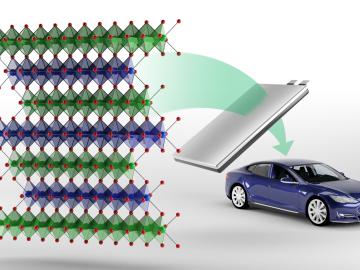
Oak Ridge National Laboratory researchers have developed a new family of cathodes with the potential to replace the costly cobalt-based cathodes typically found in today’s lithium-ion batteries that power electric vehicles and consumer electronics.
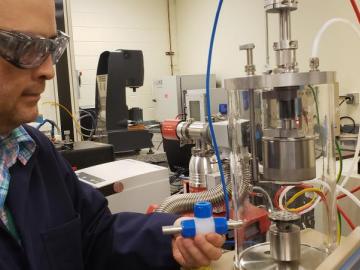
Four research teams from the Department of Energy’s Oak Ridge National Laboratory and their technologies have received 2020 R&D 100 Awards.
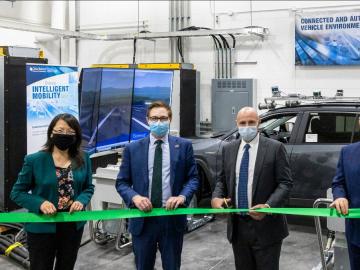
ORNL and Department of Energy officials dedicated the launch of two clean energy research initiatives that focus on the recycling and recovery of advanced manufacturing materials and on connected and
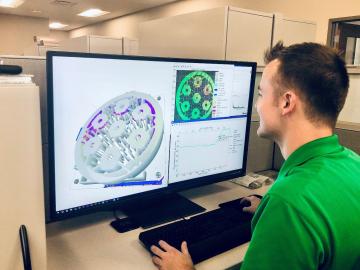
Oak Ridge National Laboratory researchers have developed artificial intelligence software for powder bed 3D printers that assesses the quality of parts in real time, without the need for expensive characterization equipment.
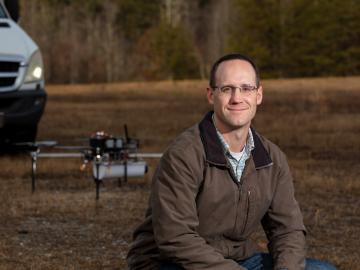
Horizon31, LLC has exclusively licensed a novel communication system that allows users to reliably operate unmanned vehicles such as drones from anywhere in the world using only an internet connection.
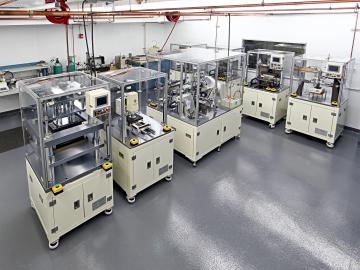
Energy storage startup SPARKZ Inc. has exclusively licensed five battery technologies from the Department of Energy’s Oak Ridge National Laboratory designed to eliminate cobalt metal in lithium-ion batteries. The advancement is aimed at accelerating the production of electric vehicles and energy storage solutions for the power grid.
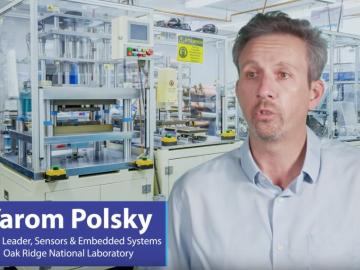
The National Alliance for Water Innovation, a partnership of the Department of Energy’s Oak Ridge National Laboratory, other national labs, university and private sector partners, has been awarded a five-year, $100 million Energy-Water Desalination Hub by DOE to address water security issues in the United States.


